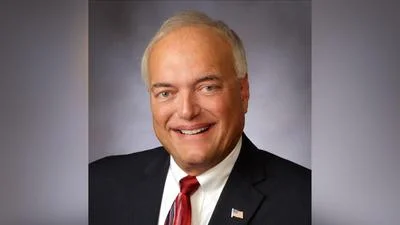MOUNT VERNON – Four years ago, Mount Vernon Municipal Court Judge John C. Thatcher helped form a program for convicted drug offenders called Mandated Education Referral Into Treatment (MERIT).
“Judge Thatcher was sick of seeing all the overdoses in the paper, people dying,” Merit Court coordinator Joel Carter told the Mount Vernon News.
The program is designed for offenders who have already violated their probation. It gives them another chance to stay out of jail, but it can be a demanding regimen.
“It’s a total sobriety program,” Carter said. “We drug test for all the substances we are able to test for.”
Merit program participants must be enrolled in a licensed drug and alcohol treatment program. They must also have a mental health assessment.
“And then they have to be willing to comply with the rules of the program,” Carter said. “They’re given every single rule up front and what it takes to move up in the phases and what it takes to graduate. So there are no surprises.”
It’s not quick. The minimum time is 11 months and the average time offenders spend in the program is 16 months.
Offenders are subject to “random and frequent” drug tests, Carter said. They also have weekly group support sessions to help them with sobriety skills. On weekends, they are required to participate in community service such as pulling weeds and cutting grass in local parks.
“We have worked with code enforcement to help clean up a property,” he said. “We showed up with 30 people and cleaned this property up in like two hours.”
Carter likes to see the Merit program participants almost every day so that he can spot the signs of relapse.
“I can tell once I get to know them, just by looking at them, what’s going on,” he said. “It also builds a relationship that they have never had.”
Traditionally, probation officers and offenders are adversaries.
“Now they are seeing that we can be a resource, a help,” Carter said. “It’s definitely changing the roles of probation.”
About 80 people have been through the program since it was launched in 2016.
“What we’ve found is that the older they are, the better they do,” Carter said. “When you hit 28-35, that seems to be the ideal age. They’re sick and tired of being sick and tired. They want to change, so we assist them with that.”
The overall success rate of the program — no relapse and no re-offenses — trends above 80%, said Carter, whose salary is paid by a state grant.
“The national average on substance abuse recovery is around 35%,” he said.







